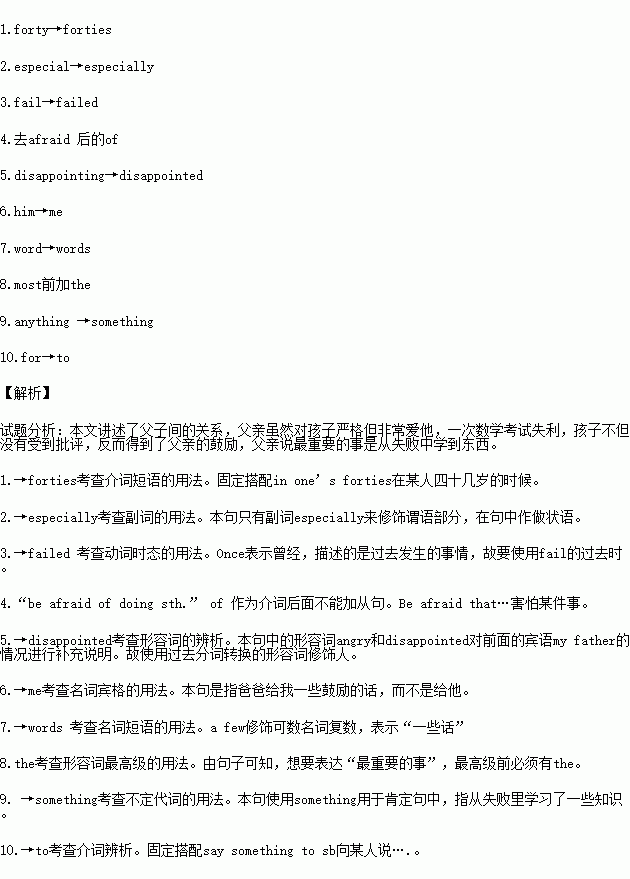题目内容
短文改错
假定英语课上老师要求同桌之间交换修改作文,请你修改你同桌写的以下作文。文中共有10处错误,每句中最多有两处。错误涉及一个单词的增加、删除或修改。
增加:在缺词处加一个漏字符号(Λ),并在其下面写出该加的词。
删除:把多余的词用斜线(\)划掉。
修改:在错的词下划一横线,并在该词下面写出修改后的词。
注意: 1.每处错误及其修改均仅限一词;
2.只允许修改10处,多者(从第11处起)不计分。
My father is now in his late forty but looks young for his age. He is very strict with me, especial in my studies. However, I know he loves me deeply in his heart. Once I fail to do well in my math exam, I was afraid of that it would make my father disappointing. On the contrary, he said I had tried my best and offered him a few word of encouragement. He said to me, “There is no need to feel bad about one or two failures and most important thing is to learn anything from failure and never give up.” Today is Father’s Day and I want to say thank you for my father.


 ),并在其下面写出该加的词。
),并在其下面写出该加的词。 )划掉。
)划掉。